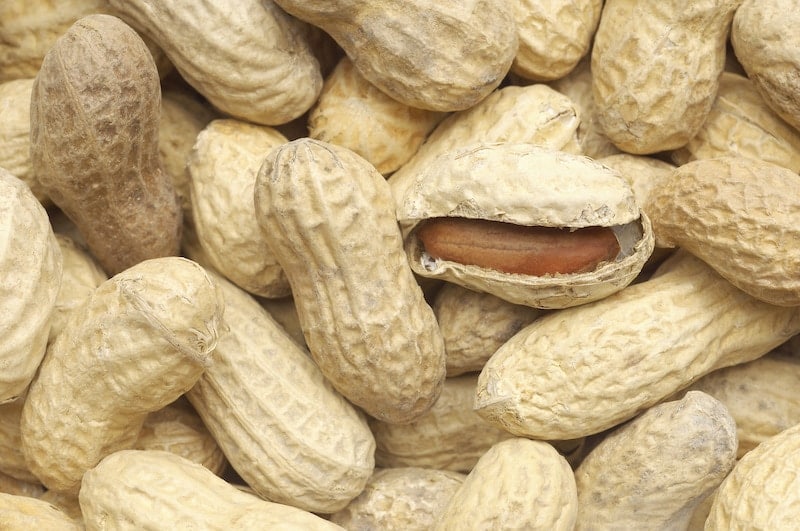Medium-chain triglyceride (MCT) oil has been a popular topic because of its ability to act as a potent and highly-efficient fuel source.
MCT oil has positive effects on mental energy and physical performance. Despite all of its exciting benefits, MCT oil also has a few downsides. Like causing gastrointestinal upset (ie, nausea, stomach cramps and diarrhea) in some people.
Let’s take a look at how medium chain triglycerides are absorbed by the body and why MCT oil may cause diarrhea.

What Does Medium Chain Triglycerides Mean?
Medium chain triglycerides are fat molecules. They are more readily absorbed by the body and oxidized for use as energy than most fats.
Medium chain triglycerides range from 6 carbons to 12 carbons in length. Short chain triglycerides have less than 6 carbons, long chain triglycerides have 13 to 21 carbons and very long chain triglycerides have greater than 22 carbons.
Medium chain triglycerides are water soluble and unlike long chain triglycerides, do not need to be transported to the lymphatic system to be broken down and used for energy.
Why Does MCT Oil Cause Diarrhea?
It is not explicitly known why MCT oil may cause diarrhea. The 1967 Journal of Gastroenterology offers this suggestion:
The mechanism of such intolerance to MCT preparations is unclear but it may be related to the rapid hydrolysis of this fat and the resultant high concentrations of free fatty acids in the stomach or intestinal lumen. In postgastrectomy patients dumping symptoms have frequently been induced when the formula has been rapidly ingested.
To put this in simple terms, when MCT oil is consumed, it is broken down further with water (hydrolosis) so it can be readily absorbed by the body. MCT’s are then directed straight into the liver through the portal vein where they are converted to endogenous ketones.
We weren’t able to find clinical studies specific to the association between MCT oil consumption and diarrhea. It seems that it is simply reported as a side effect and is usually related to dosage:
Excessive intake of oral MCT oil has been associated with gastrointestinal distress, such as abdominal discomfort, cramping, gassiness, bloating, and diarrhea. (Source)
On a personal level, I have never suffered diarrhea when taking MCT oil, however, I mix it in my coffee and drink it slowly. I have suffered abdominal cramping on one occasion when I used too much MCT oil in one dose.
MCT Oil Side Effects – Influencing Factors
If you are unfortunate enough to develop diarrhea as soon as you start taking MCT oil, there are certain factors that you must consider to determine the most likely cause. While diarrhea is usually a short-term side effect of MCT oil, it may persist indicating a pronounced problem that requires immediate attention.
MCT Oil Dosage
Most of the companies dealing in MCT oil recommend using one to three tablespoons on a daily basis. While it is completely safe to use up to three tablespoons a day, it is never recommended to start with the maximum amount. People who start immediately consuming high doses of MCT oil commonly develop diarrhea.
The best practice is, to begin with as low as 1 teaspoon of MCT oil so your body can adjust.
Gradually add more oil each day to your dose. Never suddenly increase your daily dose to the maximum amount.
MCT Oil Use
If you have just started using MCT oil, side effects like diarrhea can be expected. This is especially true if you start with a moderate dose. To minimize the side effects of MCT oil, begin with one teaspoon and work your way up to 1 tablespoon when your body is ready.
For most people, diarrhea worsens during the first few weeks of using this oil then settles down after some time. With time, your body develops certain enzymes and your stomach adapts in order to handle this oil in a more efficient way.
Take MCT Oil With Food
Another factor to consider while taking MCT oil is the time of consumption. Using this oil on an empty stomach may cause stomach pain, diarrhea, and other issues.
Experts strongly suggest taking this oil with food and strongly advise against heating or cooking with it. Exposing MCT oil to high temperatures may make it toxic to the body.
If you are taking MCT oil following a meal, you are on the right track. However, if you consuming it on an empty stomach, it is time to change your routine.
You can always experiment with MCT oil in order to find the perfect time of consumption. Take this oil before eating, in the middle of your meal, or right after it, and see which time works best for you.
Choose The Best Quality MCT Oil
Many people believe there is only one type of MCT oil and that all MCT products on the market have the exact same contents. Unfortunately, this is not the case.
Each MCT oil is different based on the type of MCTs it contains. These MCTs may include fatty acids of any length, from C6 to C12. Additionally, different brands of MCT oil have different purity levels and use different methods to create them.
Some experts believe that lauric acid or C12 acts as a long-chain triglyceride (LCT) and can lead to side effects due to its prolonged breakdown. MCT oils rich in this particular type of fatty acid should be avoided.
Check out the best brands of MCT Oils
MCT Oil Does Not Cause Side Effects in Everyone
Individuals react differently to MCT oil for a variety of reasons such as current health status, past medical history, and genetics. While a lot of people develop diarrhea as soon as they start using this oil, there are many who never develop it.
Is MCT Oil Dangerous?
MCT Oil has been used for decades, particularly with certain medical conditions such as malabsorbption syndrome. MCT oil is safe for use in humans. Medium chain triglycerides are also found naturally in some of the foods we eat, such as dairy.
Related Questions
What other gastrointestinal side effects can be caused by MCT oil?
In addition to diarrhea, the consumption of MCT oil may lead to nausea, bloating, abdominal cramps, and flatulence.
What is the best way to use MCT oil for preventing diarrhea?
Use MCT Oil in small doses and added to food.
Add MCT oil to smoothies, salads, shakes, coffees, and your daily meals in order to prevent developing diarrhea and other side effects.
Conclusion
MCT oil can cause diarrhea and gastrointestinal upset in some people. This is usually temporary and will self resolve.
Make sure to follow the tips mentioned in this article to avoid diarrhea and enjoy the benefits of MCT oil to the fullest.







